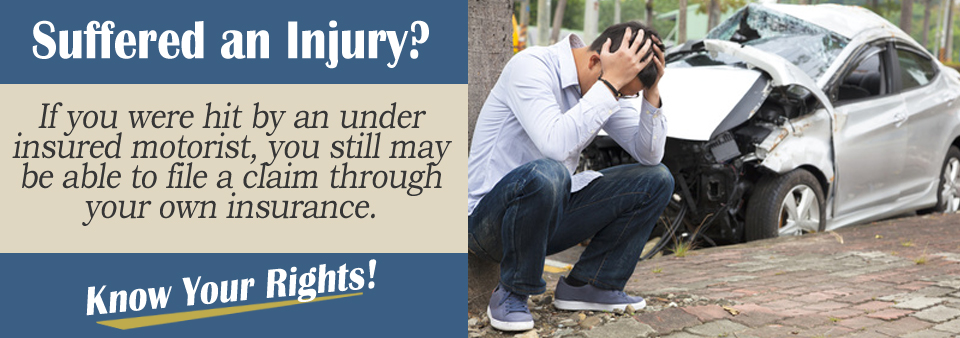Insurance is a requirement when it comes to operating a motor vehicle, but not all drivers follow this law. In fact, it is surprising just how many people drive around without any coverage at all. That means there is a good chance that, if you are involved in a car accident, you could be going up against an uninsured motorist. What do you do?
We have asked attorney Alaina Sullivan about what you should do. Here is what she had to say:
Can I Sue the Driver?
Of course, you can sue anyone you want. The question is: is this a good idea or will it be more like getting blood from a rock? Odds are if the person has no insurance, he or she will not have much in terms of money or assets. Sure, you may win against this person in court and be awarded damages, but how likely is it you will see anything? It is unlikely.
You will find yourself trying to then go after the person with an income withholding order, and even that may prove unsuccessful. It is not fair by any means, but at some point, you do have to be realistic.

Sometimes courts will order a payment plan be put in place when an uninsured motorist is involved. Perhaps the person could agree to pay a certain amount a week or every two weeks. You will be getting paid, albeit slowly. However, if the person suddenly stops paying, you will have to pay even more attorneys’ fees to go after payment. Is it worth it? Probably not.
Uninsured Motorist Coverage
Uninsured motorist coverage is required by 21 states and the District of Columbia. If it is not required in your state, consider adding it to your policy. You are protecting yourself by doing this. How uninsured motorist coverage works is you are essentially filing a claim against your own insurance company. Give your insurance agent notice if you intend to pursue your uninsured motorist coverage and make sure you know the deadlines to file anything. The last thing you want is to delay in filing a claim with your insurance company only to find out you are too late.
The first thing you do is try to come up with a settlement figure with your insurer. If you are not able to come to any agreement, most policies require you to go to binding arbitration. Arbitration is a cross between mediation and a court proceeding. It is much less formal than a trial but does have a structured environment to it, which makes it differ from mediation. You have a “hearing” in front of an arbitrator or panel of three arbitrators, and that person comes to a decision based on the evidence presented by both sides. Once a decision is made, it is binding. That means you are stuck with the decision. Appeals are possible but only in very limited or restricted circumstances.
Limits of Awards
Keep in mind that your award will be limited to the amount of benefits you have on your policy. If your coverage includes only $100,000 in coverage for your own negligent conduct, you will be limited for awards up to that amount in uninsured benefits. That figure should be considered when you are structuring your uninsured motorist coverage.
Call the Police no Matter What
If you have any doubt whatsoever about the other person involved in the accident, call the police. This rule of thumb protects you in ensuring you have a record of the accident and a third party’s account of what occurred. Having this information will protect you as you go along the claims process. Having the police officer there will also assist you if the other person is not being cooperative since he or she does not have insurance. The police officer will also help make sure information is properly exchanged.
Contact an Attorney Today
A licensed personal injury attorney will be able to evaluate your case and determine if you have a claim against the other party’s insurance company. For the best chance of receiving the compensation you need to pay for medical bills, auto body bills, and pain and suffering, you should speak with a personal injury attorney in your area today.